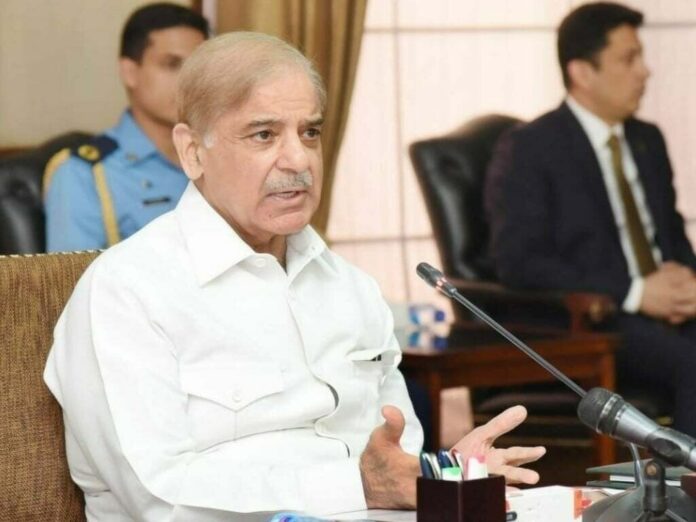Prime Minister Shehbaz Sharif plans to introduce 5 year home grown economic program amid boost Pakistan’s economy. This program will focus on boosting key sectors such as agriculture, information technology, and other underutilized industries. Speaking at the launch of the Buna-Raast connectivity project in Islamabad, he emphasized that the program’s broad framework has been developed over several months through extensive consultations with stakeholders.
PM Shehbaz Sharif highlighted the challenges of reforming the Federal Board of Revenue (FBR) and the power sector, noting his personal involvement in overseeing the FBR’s digitization efforts. He expressed confidence that these reforms, though demanding, will yield positive results for the nation.
The Buna-Raast connectivity project, linking Pakistan’s Raast payment system with the Arab Monetary Fund’s (AMF) Buna system, was also launched to facilitate remittances for millions of overseas Pakistanis in Arab countries. This initiative is expected to boost Pakistan’s foreign exchange reserves and strengthen ties with the Arab world. The prime minister called it a significant advancement in modernizing financial transactions and expanding the country’s digital payment infrastructure.
Finance Minister Muhammad Aurangzeb praised the project, citing its potential to bring transparency and reduce leakages in remittances, taxation, and the power sector. He also highlighted the government’s commitment to macroeconomic stability, evidenced by a reduced current account deficit, a stable currency, improved foreign reserves, and a surge in remittances, with $3 billion received in July.
Dr. Anita Zaidi from the Bill and Melinda Gates Foundation noted that the Buna-Raast project would digitally link Pakistan’s economy with the Arab world, improve productivity, and enhance the lives of millions, particularly women entrepreneurs and remittance receivers. The project is poised to be a game-changer, making financial transactions more affordable and accessible.


